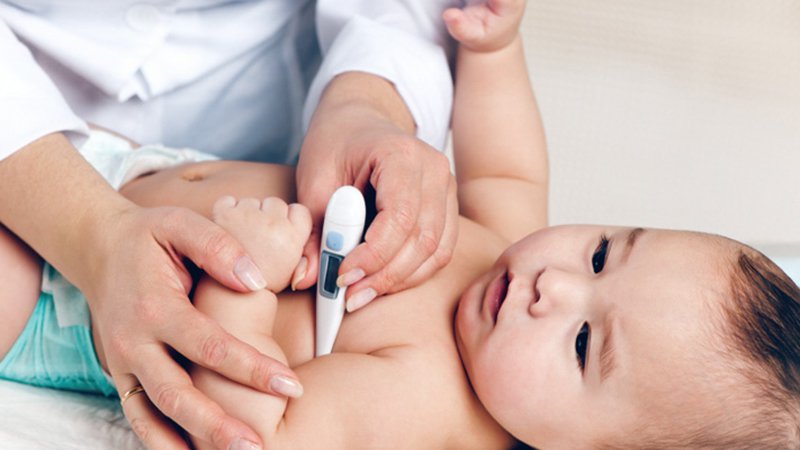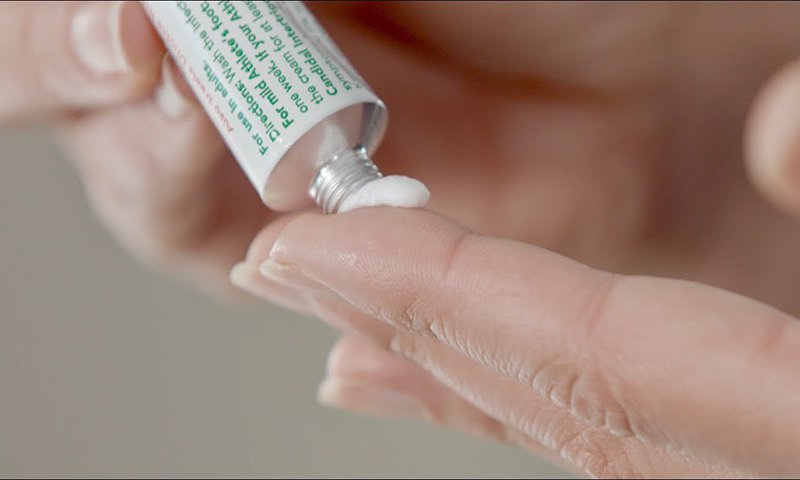Soothe pain for babies when teething
The article is professionally consulted by Doctor of Dentistry - Jaw - Face - Department of Examination & Internal Medicine - Vinmec Hai Phong International General Hospital
Usually teething will make children feel extremely uncomfortable. Many babies in the process of teething will cry at night because of swollen, painful gums. Teething makes it difficult for you to eat and drink and makes you more irritable. Besides, children's sleep is also affected by teething.
1. How long will teething in children last?
Each child will have a different teething process. Therefore, there is no universal standard for teething time of children. Often children will feel more discomfort when the first teeth come in, and by the time the baby has molars, the pain will subside. Usually, children will have molars when they are over 1 year old.
Some children will show signs of teething before teeth appear, while others will not. Therefore, to help children feel more comfortable during teething, you need to learn carefully and be ready to handle measures.
While some babies don't show any signs of teething, others become fussy, irritable, drool a lot, have no appetite or cry more than usual. Some children may even have vomiting and fever.
Here are some common symptoms of teething in babies, including:
Poor appetite Difficulty sleeping More fussing Likes to chew things Red, sore or swollen gums Excessive drooling Moderately, babies start Teething at about 4 to 7 months and a total of 20 "baby teeth" by the time the child turns 3.
Some children will show signs of teething before teeth appear, while others will not. Therefore, to help children feel more comfortable during teething, you need to learn carefully and be ready to handle measures.
While some babies don't show any signs of teething, others become fussy, irritable, drool a lot, have no appetite or cry more than usual. Some children may even have vomiting and fever.
Here are some common symptoms of teething in babies, including:
Poor appetite Difficulty sleeping More fussing Likes to chew things Red, sore or swollen gums Excessive drooling Moderately, babies start Teething at about 4 to 7 months and a total of 20 "baby teeth" by the time the child turns 3.

Trẻ có thể quấy khóc, cáu kỉnh hoặc bị sốt khi mọc răng
2. Are the methods often done when children teething are effective and safe?
Soothe teething gums with prescription or over-the-counter (OTC) medications, homeopathic remedies, or teething jewelry marketed to relieve teething pain that's now being used by many moms. Selection. But in reality such products can be dangerous and lead to serious injury or even death of a child. This also applies to older children with special needs who may use teething jewelry to stimulate their senses.
The American Academy of Pediatrics (AAP) recommends other ways to treat teething pain, including rubbing your child's gums with clean fingers or using a teething ring made of hard rubber for them to chew on. . For children with sensory stimulation needs, parents and caregivers should talk to a professional about safer methods.
Some parents put their babies on teething jewelry including necklaces, bracelets, and other jewelry that are marketed to ease teething pain for babies. It can also be used for special needs, such as autism or attention deficit hyperactivity disorder, to stimulate a child's senses or redirect attention when he or she chews or bites. Some parts of the body due to teething cause discomfort in children.
Jewelry can be made of various materials such as amber, wood, marble or silicone. Teething jewelry is marketed unlike teething mouthpieces that are made of hard plastic or rubber.
There are serious risks associated with the use of jewelry marketed to relieve teething pain such as suffocation, strangulation, mouth trauma, and infection. Some other risks include the possibility of injury to the mouth or infection if a piece of jewelry irritates or punctures a child's gums.
Teething creams and gels also have certain risks
Teething creams and gels are also popular choices among parents to soothe their teething babies by rubbing numbing medicine on their gums. However, the U.S. Food and Drug Administration (FDA) warns against using any topical medications to treat teething pain in children, including prescription or OTC creams and gels. , or homeopathic teething tablets. They offer little or no benefit, and are associated with serious risks when used.
Benzocaine - a local anesthetic - is the active ingredient in a number of OTC oral health products such as Anbesol, Baby Orajel, Cepacol, Chloraseptic, Hurricaine, Orabase, Orajel, and Topex. These products should not be used on teething babies as they can be dangerous and unhelpful as they drift out of the child's mouth within minutes.
The use of benzocaine gels, sprays, ointments, solutions, and lozenges for mouth and gum pain can lead to a serious and sometimes fatal condition, called methemoglobinemia, in which the carrying capacity The oxygen content of red blood cells is significantly reduced.
Prescription and OTC benzocaine oral health care medications are also widely used in adults. Doctors and dentists commonly use sprays containing benzocaine to numb the lining of the mouth and throat or to suppress the vomiting reflex during medical and surgical procedures, such as transesophageal echocardiography. endoscopy, endotracheal intubation, and feeding tube replacement. But benzocaine sprays are not FDA-approved for purposes of soothing sore gums during teething.
Consult a healthcare professional about the use of benzocaine and other local anesthetics, especially if you have heart disease; are elderly; is a smoker; or have breathing problems such as asthma, bronchitis, or emphysema. Those conditions put you at higher risk for methemoglobinemia-related complications.
The American Academy of Pediatrics (AAP) recommends other ways to treat teething pain, including rubbing your child's gums with clean fingers or using a teething ring made of hard rubber for them to chew on. . For children with sensory stimulation needs, parents and caregivers should talk to a professional about safer methods.
Some parents put their babies on teething jewelry including necklaces, bracelets, and other jewelry that are marketed to ease teething pain for babies. It can also be used for special needs, such as autism or attention deficit hyperactivity disorder, to stimulate a child's senses or redirect attention when he or she chews or bites. Some parts of the body due to teething cause discomfort in children.
Jewelry can be made of various materials such as amber, wood, marble or silicone. Teething jewelry is marketed unlike teething mouthpieces that are made of hard plastic or rubber.
There are serious risks associated with the use of jewelry marketed to relieve teething pain such as suffocation, strangulation, mouth trauma, and infection. Some other risks include the possibility of injury to the mouth or infection if a piece of jewelry irritates or punctures a child's gums.
Teething creams and gels also have certain risks
Teething creams and gels are also popular choices among parents to soothe their teething babies by rubbing numbing medicine on their gums. However, the U.S. Food and Drug Administration (FDA) warns against using any topical medications to treat teething pain in children, including prescription or OTC creams and gels. , or homeopathic teething tablets. They offer little or no benefit, and are associated with serious risks when used.
Benzocaine - a local anesthetic - is the active ingredient in a number of OTC oral health products such as Anbesol, Baby Orajel, Cepacol, Chloraseptic, Hurricaine, Orabase, Orajel, and Topex. These products should not be used on teething babies as they can be dangerous and unhelpful as they drift out of the child's mouth within minutes.
The use of benzocaine gels, sprays, ointments, solutions, and lozenges for mouth and gum pain can lead to a serious and sometimes fatal condition, called methemoglobinemia, in which the carrying capacity The oxygen content of red blood cells is significantly reduced.
Prescription and OTC benzocaine oral health care medications are also widely used in adults. Doctors and dentists commonly use sprays containing benzocaine to numb the lining of the mouth and throat or to suppress the vomiting reflex during medical and surgical procedures, such as transesophageal echocardiography. endoscopy, endotracheal intubation, and feeding tube replacement. But benzocaine sprays are not FDA-approved for purposes of soothing sore gums during teething.
Consult a healthcare professional about the use of benzocaine and other local anesthetics, especially if you have heart disease; are elderly; is a smoker; or have breathing problems such as asthma, bronchitis, or emphysema. Those conditions put you at higher risk for methemoglobinemia-related complications.

Phụ huynh không tự ý sử dụng các loại kem và gel để giảm đau khi mọc răng cho bé
3. What should be done to relieve pain for children when teething?
If your baby's gums are swollen, gently rub the gums with your fingers, or have them wear a teething ring made of hard rubber for them to chew on. You need to make sure that the teething ring is not too stiff. If the foreign body is too hard, it can hurt the baby's gums. Parents should supervise the child so that the child does not accidentally choke on the ring while teething.
In addition, if a child has special needs, which may require sensory stimulation, it is advisable to speak with the child's healthcare professional about safer methods and treatments. Jewelry that is marketed to relieve teething pain and stimulate the senses can lead to serious injury, even choking a child.
FDA is continuing to closely monitor the use of teething jewelry and other teething pain relief products, and is evaluating whether other approaches are needed to address these problems. risks associated with these products or not, this is seen as part of our commitment to protecting public health, especially with respect to the health and safety of children.
To protect children's oral health, parents can take their children to regular dental check-ups at Vinmec International General Hospital. At Vinmec, the Department of Odonto-Stomatology is classified into many different specialties such as: Restorative dentistry, maxillofacial trauma, general dentistry, cosmetic dentistry, endodontics...
If there is a need consultation and examination at Hospitals of the national health system, please book an appointment on the website to be served.
In addition, if a child has special needs, which may require sensory stimulation, it is advisable to speak with the child's healthcare professional about safer methods and treatments. Jewelry that is marketed to relieve teething pain and stimulate the senses can lead to serious injury, even choking a child.
FDA is continuing to closely monitor the use of teething jewelry and other teething pain relief products, and is evaluating whether other approaches are needed to address these problems. risks associated with these products or not, this is seen as part of our commitment to protecting public health, especially with respect to the health and safety of children.
To protect children's oral health, parents can take their children to regular dental check-ups at Vinmec International General Hospital. At Vinmec, the Department of Odonto-Stomatology is classified into many different specialties such as: Restorative dentistry, maxillofacial trauma, general dentistry, cosmetic dentistry, endodontics...
If there is a need consultation and examination at Hospitals of the national health system, please book an appointment on the website to be served.
Để đặt lịch khám tại viện, Quý khách vui lòng bấm số HOTLINE hoặc đặt lịch trực tiếp TẠI ĐÂY. Tải và đặt lịch khám tự động trên ứng dụng MyVinmec để quản lý, theo dõi lịch và đặt hẹn mọi lúc mọi nơi ngay trên ứng dụng.
References: fda.gov,






